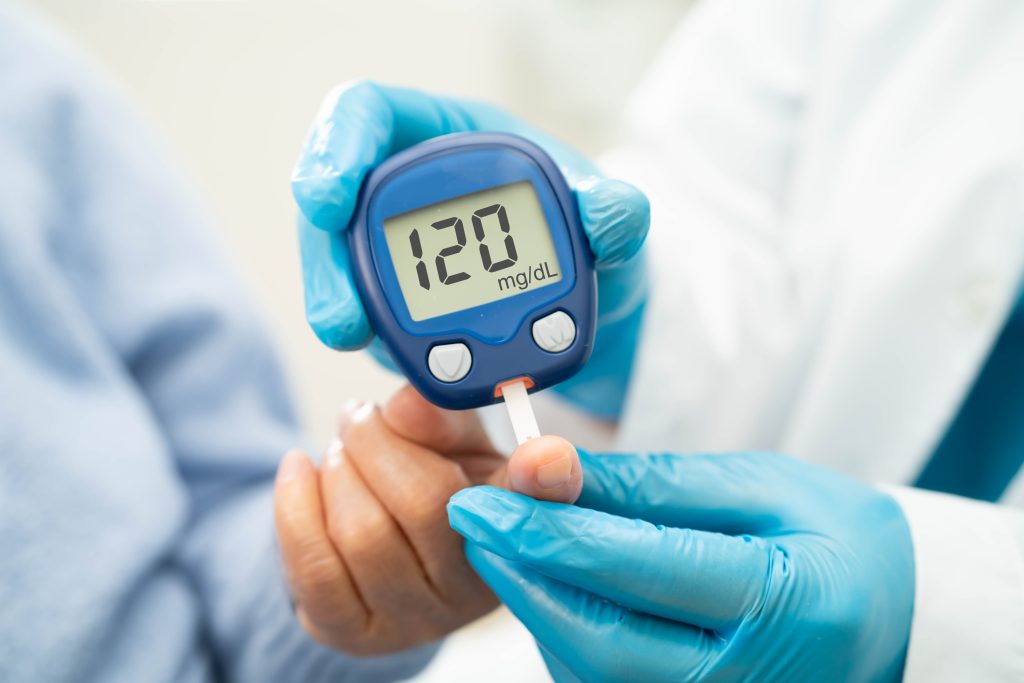
Introduction
Balancing blood sugar is essential for maintaining overall health, energy levels, and preventing chronic diseases. Unstable blood sugar levels can lead to fatigue, mood swings, cravings, weight gain, and increase the risk of type 2 diabetes.
Fortunately, by making smart dietary choices, adopting a healthy lifestyle, and practicing mindful habits, you can keep your blood sugar stable throughout the day. In this article, we will explore the importance of blood sugar balance, natural ways to control it, and long-term strategies for better health.
What is Blood Sugar?
Blood sugar, also known as blood glucose, is the amount of sugar present in your bloodstream. It comes mainly from the food you eat, especially carbohydrates. Your body uses glucose as its main source of energy.
To regulate blood sugar, your body produces insulin, a hormone made by the pancreas. Insulin helps glucose enter your cells to be used for energy or stored for later.
Why Balancing Blood Sugar is Important
Keeping blood sugar stable prevents sudden spikes (hyperglycemia) and drops (hypoglycemia). Proper balance supports:
- Stable energy levels – No mid-day crashes or fatigue
- Better mood – Reduced irritability and anxiety
- Weight management – Controls cravings and overeating
- Diabetes prevention – Lowers risk of type 2 diabetes
- Heart health – Prevents damage caused by long-term high blood sugar
Signs of Imbalanced Blood Sugar
You may have unstable blood sugar if you experience:
- Constant hunger or cravings (especially for sweets)
- Fatigue and low energy
- Sudden mood swings or irritability
- Difficulty concentrating
- Frequent urination and thirst
- Unexplained weight gain or difficulty losing weight
If these symptoms persist, consult a doctor and get your blood sugar checked.
Natural Ways to Balance Blood Sugar
1. Eat a Balanced Diet
The type of food you eat directly impacts blood sugar levels. A balanced diet should include:
- Protein – Slows down sugar absorption (chicken, fish, tofu, beans)
- Healthy fats – Support insulin sensitivity (avocado, nuts, olive oil)
- Fiber-rich carbs – Slow glucose release (oats, brown rice, whole grains)
- Vegetables – High in fiber, low in sugar (leafy greens, broccoli, cucumber)
Tip: Avoid processed foods, refined sugar, and sugary drinks.
2. Control Portion Sizes
Eating large meals can cause blood sugar spikes. Instead, eat smaller, balanced meals throughout the day to maintain stable glucose levels.
3. Stay Active
Physical activity helps your muscles use glucose more efficiently, lowering blood sugar.
- Walking after meals helps reduce sugar spikes.
- Strength training improves insulin sensitivity.
- Yoga and stretching reduce stress, which helps regulate blood sugar.
4. Manage Stress
High stress increases cortisol, a hormone that raises blood sugar. Practice:
- Deep breathing
- Meditation
- Yoga
- Regular relaxation techniques
5. Get Enough Sleep
Poor sleep disrupts insulin function and increases cravings for sugar. Aim for 7–8 hours of quality sleep every night.
6. Stay Hydrated
Dehydration can raise blood sugar levels. Drink 2–3 liters of water daily to support healthy glucose regulation.
Foods That Help Balance Blood Sugar
- Leafy Greens – Spinach, kale, and lettuce are low in carbs and high in fiber.
- Cinnamon – May improve insulin sensitivity.
- Nuts & Seeds – Provide healthy fats and protein.
- Apple Cider Vinegar – May reduce blood sugar spikes after meals.
- Berries – Rich in fiber and antioxidants.
- Legumes – Beans, lentils, and chickpeas stabilize sugar levels.
- Whole Grains – Brown rice, oats, and quinoa release glucose slowly.
Lifestyle Tips for Blood Sugar Balance
- Eat meals at regular times
- Avoid skipping breakfast
- Include protein in every meal
- Snack smart (nuts, yogurt, boiled eggs)
- Limit alcohol and sugary beverages
- Track your blood sugar if needed
Role of Exercise in Blood Sugar Balance
Exercise plays a direct role in regulating glucose.
- Aerobic exercise (walking, cycling, swimming): Improves insulin response
- Strength training: Builds muscle, which uses glucose efficiently
- HIIT workouts: Boost metabolism and burn stored sugar
Common Mistakes to Avoid
- Relying on sugary “energy drinks” for quick boosts
- Skipping meals, which leads to sugar crashes
- Eating too many refined carbs (white bread, pastries)
- Lack of physical activity
- Ignoring stress and sleep quality
Natural Supplements for Blood Sugar Support
(Some may help but should be used with medical advice.)
- Chromium – Helps insulin function
- Magnesium – Supports glucose metabolism
- Cinnamon extract – May lower fasting blood sugar
- Berberine – Natural plant compound shown to improve insulin sensitivity
Long-Term Blood Sugar Management
Balancing blood sugar isn’t just a one-time effort—it requires lifestyle consistency.
- Choose whole foods over processed ones
- Exercise regularly
- Sleep well and reduce stress
- Monitor your health with regular check-ups
- Adopt habits that are sustainable for life
Conclusion
Balancing blood sugar is not only important for preventing diabetes but also for maintaining energy, mood, and long-term health. By focusing on a nutrient-rich diet, portion control, regular exercise, hydration, quality sleep, and stress management, you can achieve stable blood sugar levels naturally.
Remember, small daily choices—like replacing sugary drinks with water, walking after meals, or adding more fiber to your diet—make a big difference over time.
Healthy blood sugar means a healthier, more energized, and longer life.

